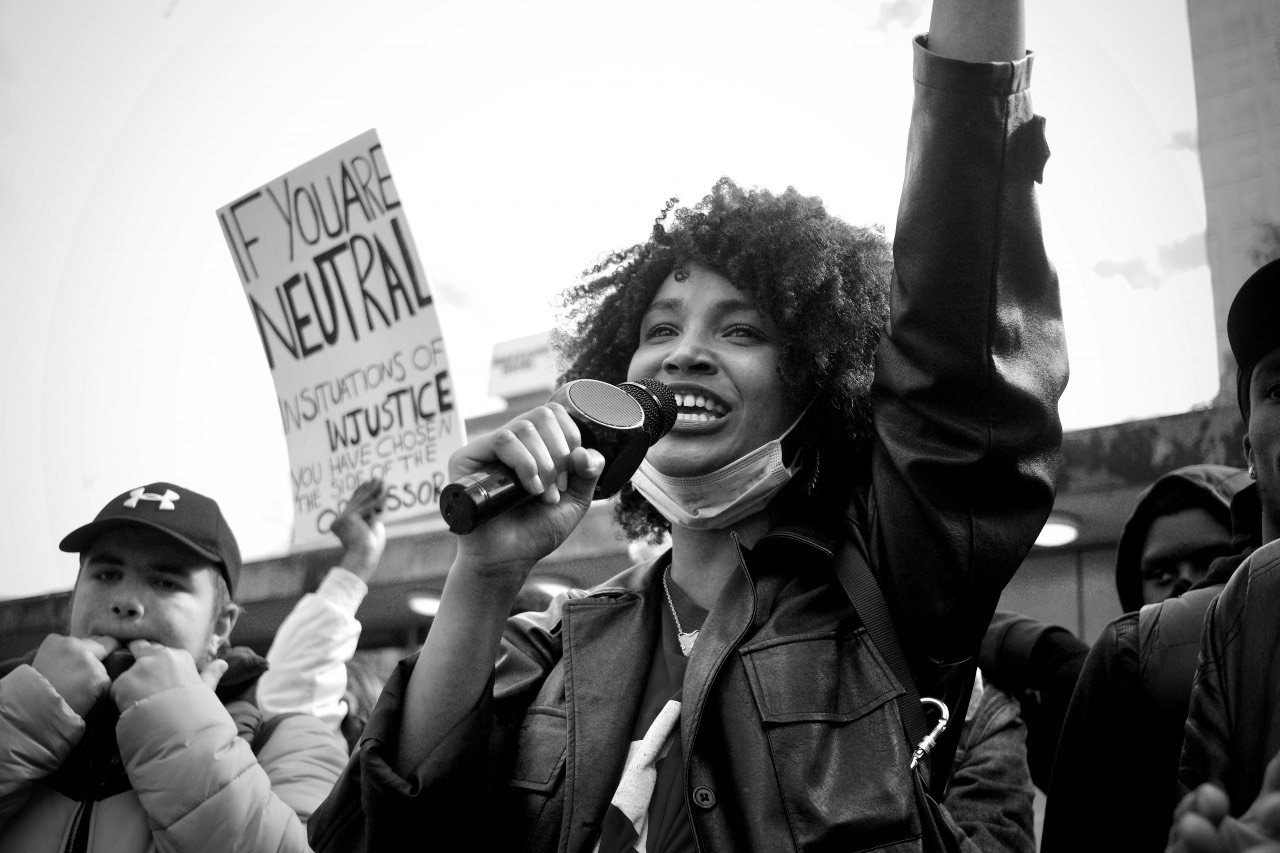Protest is about making us uncomfortable. And we need to remember that comfort isn’t good.
We can like comfort, sure. Look for comfort. Try to comfort others. But it isn’t an inherent good.
Comfort famously leads to lazy thinking and biased behavior. It can be the source of injustice as we maintain bad decisions. It leads to avoiding good things, preserving bad things, engaging in familiar habits, and refraining from growth.
Treating comfort as an inherent good is one of our most common and disastrous practices.
Protests make us uncomfortable.
So when we treat comfort as good and worthy of protection, protests become “bad” and something to be fought.
This isn’t an intellectual thing. Look at how we treat protests in the United States.
Peaceful protests are treated as dangerous. Even when there is no threat of violence, they are treated like a threat of violence to the status quo.
And the public safety response is often to create violence. To wage violence against the protestors. As we saw in Austin this week.
The imbalance is palpable.
But it isn’t sensible.
The level of physically violent response to protest far exceeds the physical threat of any protest. This only makes sense when we consider the very concept of protest itself as threatening. And the violence inherently necessary to protect the people from change.
Why do we indulge this wildly over-protective posture toward a sense of comfort? There is really only one answer.
It is about authority.
Protest disrupts more than a vague sense of comfort. It challenges our sense of authority and exposes the imbalance in our entire structure of government.
When hundreds of people gather, then become thousands, growing toward millions, we see something far closer to the spirit of democracy than we feel in our representative government.
And when a president of a university invites the National Guard onto campus armed for war, to ostensibly restore “comfort” by force, we see centralized authority.
These attempts at “restoring order” are really about our discomfort with authority. And we hope that some soldiers can quite literally beat down the protest and make things “normal.” To restore our comfort. But this is impossible.
We are replacing their comfort with ours.
Literally beating and arresting protestors doesn’t create comfort for them. Nor does it actually restore it in the population. When people stoke fear of protests, that fear increases with the violence—as violence begets more violence—and more directly, doesn’t beget comfort!
This is even more disturbing when the protest is about reducing the suffering of others. These students are protesting the genocide of a people. And the state’s response? To beat them.
Focusing on comfort is a lie.
It doesn’t stop the protests from happening, justify violence against protestors, or prevent us from being judged for allowing state-sanctioned violence against others.
In is complete psychological avoidance. And something most of us naturally do. Family Systems Theory shows how normal it is.
But avoidance isn’t good. It isn’t heroic. And it isn’t right.
We must resist the psychological comfort of preserving our psychological comfort when it comes to protests. We must embrace the very simple idea that protests are supposed to be uncomfortable and being uncomfortable is OK.
We don’t have a right to comfort.
When we avoid dealing with this, however, trying to preserve our comfort at all costs, it makes us complicit in the violence meted out against peaceful protestors.
This isn’t about safety. But control.
